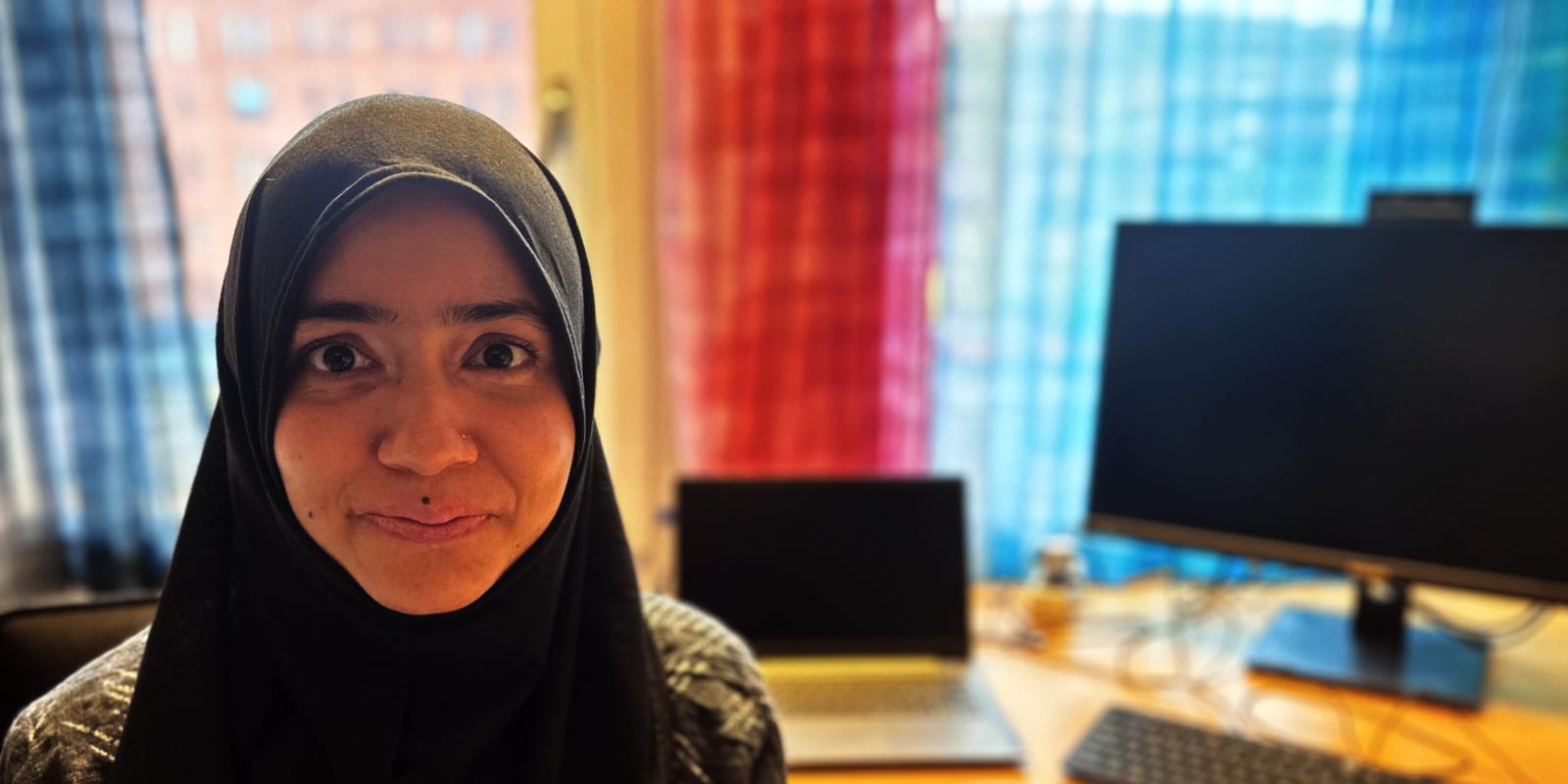That is what Saliha Khalid (31) wants to find an answer to in NAFKAM's new project "Traditional and complementary medicine used by immigrants from Pakistan living in Oslo, Norway".
Saliha grew up in Pakistan, and is a pharmacist by profession. She completed her bachelor's degree from COMSATS University in Islamabad, Pakistan, in 2013 - and obtained a master's degree in pharmacy from the same institution in 2016. In the meantime, she worked as a production pharmacist in her home country.
What do you wish to find out in the project?
- As a Pakistani, I know that the use of traditional and complementary treatment methods is a large part of our daily life. I will research whether this tradition also affects Norwegian-Pakistani's health choices. My hope is that the results of this project will be able to provide answers that can be used further in the work to improve people's health, says Saliha Khalid.
It will also be surveyed to what extent Norwegian-Pakistani use school medicine and alternative treatment at the same time. This is important to find out, among other things, because certain types of herbs can change/reduce the effect of medicines. In addition, Khalid must find out whether anyone postpones or opts out of school medical treatment in favor of traditional treatment.
- What we know from Pakistan is that many people have poor finances, and that alternative treatment is cheap and easily available. It is often chosen over conventional medical care and medicines, which are far more expensive. I will look at how widespread this culture is here in Norway, and whether it can help to explain why Norwegian-Pakistani generally have somewhat worse health than ethnic Norwegians, says Khalid.
NAFKAM's senior researcher Agnete E. Kristoffersen says that research into immigrants' use of traditional forms of treatment from their home country has been desired for a long time:
- The reason why we have started this project is that previous research shows that ethnic minorities in Norway use different traditional and complementary forms of treatment than the majority population. Gaining knowledge about this is important for several reasons: Firstly, it is important to have knowledge of which health promotion measures the various minority groups in Norway use, so that we can offer more culturally sensitive patient-centred health care to the minority groups. In addition, we need to capture traditional treatments that may affect conventional treatment offered in Norway.
Kristoffersen is very pleased to have Saliha Khalid join the team:
- Getting Saliha involved in this project has meant a lot to us. Not only does she, as a pharmacist from Pakistan, have extensive knowledge of which treatments are used in Pakistan, she also speaks both Urdu and Punjabi herself and can interview the participants in the study in their own mother tongue if they wish. She also has the same cultural background as the participants to be recruited. Language in particular has proven to be important when interviewing people about traditional knowledge. Much of the traditional treatment is referred to in the language used within the culture in which it is used, and does not always have comprehensive terms in other languages. There are, for example, words and expressions in Urdu that cannot be translated into Norwegian, and which Saliha understands and can explain well.
The project started on 1 September 2022, and is expected to be completed by the end of 2025.
A big welcome to Saliha from all of us at NAFKAM!
